A Cuppa with Naturopath Brooke Oke

Hi Brooke, can you please tell use a little about yourself and your background in Naturopathy?
Hi! I’m Brooke, I live in northern NSW right near the border of Queensland. I have a beautiful clinic space in Currumbin where I practice 4 days a week. I also work at SSKIN with the incredible team once a fortnight, so my weeks have a great variety. I studied a Bachelor of Health Science in Naturopathy and graduated just over 3 years ago. I was actually a Registered Nurse working in Mental Health for almost 10 years before I transitioned into Naturopathy. My nervous system is very thankful for the switch! I made the pivot as I was feeling burned out by the cracks within the medical system and that the work I was doing wasn’t aligning with my personal values anymore. Now I have a thriving clinic, freedom to dictate my work hours and the ability to connect on a deeper level with people everyday.
What sparked your interest in Naturopathy and why did you decide to work in women's health, specifically focusing on vaginal and gut health?
I’d say my own health journey inspired me to look deeper into Naturopathy initially. I was diagnosed with endometriosis at a young age and have always struggled with my digestive health. After delving into complimentary medicines myself and seeing the benefits I was really motivated to help others. I have completed further studies around vaginal microbiome and gut microbiome health which has inspired me a lot to focus on these treatment areas in my clinic! Naturally, word of mouth spreads and now I attract mostly women struggling with digestive health issues, vaginal or reproductive health complaints and then all the other symptoms that can come from imbalances in these areas.
How does Naturopathy approach the topic of vaginal health, and what are some common concerns or conditions you often see in your practice?
The main foundations of Naturopathy are to treat the whole person and treat the cause. I apply this to my vaginal health clients and often run specific microbiome testing (via swabs), bloods and anything else that may be influencing vaginal health- often the gut microbiome is a huge factor as well. I see clients struggling with anything from recurrent thrush, bacterial vaginosis, vaginal atrophy, HSV, vulval psoriasis (yes it’s a thing!) and vulvodynia for example. Often support and education is a huge component of what I do as well, as people often come to me mistreated and/or misinformed about what’s going on for them. Intimate health is typically poorly managed and not talked about enough.

Various factors can influence vaginal health. What are the most common of these?
Honestly, everything can influence vaginal health. Something that’s commonly overlooked though is your underwear, you’d be surprised what a difference switching to organic bamboo underwear can make! I’ve recently thrown away all of my old synthetic and cotton underwear and switched and the difference is amazing. Organic bamboo is the only moisture wicking, antibacterial and pH friendly fabric so it’s really helpful to maintain a healthy vagina. Never wash your vulva with soap! This disrupts your pH. Some lubricants can disrupt the microbiome too so look for ‘microbiome friendly brands’. High sugar diets, stress, smoking, alcohol, hormonal birth control, IUD’s and antibiotics can all disrupt the microbiome too, which can lead to vaginal health concerns.
As women, I'm sure we've all heard the term 'pH balance', but what is the importance of pH balance, and how do you help clients maintain optimal levels naturally?
Naturally, the vaginal pH actually sits a lot lower than the rest of the body. A pH of around 4 is optimal as acidity protects the vagina from infections and pathogenic overgrowth. Healthy bacteria in the vagina known as your Lactobacillus species produce acid = lower pH = natural protection and harmony. Things that can shift the pH to a more alkaline state are sex (semen is more alkaline), lubricants, sweat, oral antibiotics (these can deplete lactobacillus levels), smoking or high stress. Maintaining a healthy pH comes from looking after your gut health, not washing your vulva with soap and sometimes a lactobacillus containing probiotic can help (but I’d recommend checking with your practitioner). I often recommend drinking green tea and fennel tea as these are naturally antibacterial and actually can encourage lactobacillus growth in the vagina.
How does gut health impact vaginal health?
If you’ve got low levels of healthy flora in the gut microbiome this can translate to an imbalance in the vaginal microbiome - especially lactobacillus. Often overgrowths of yeasts like candida in the gut can drive recurrent thrush, same for bacteria overgrowth as these can drive recurrent BV. If you’re someone who experiences thrush or vaginal symptoms when or after taking antibiotics, this could be a sign there’s an underlying imbalance or low levels of beneficial gut flora.

Are there any specific dietary recommendations you make to support both gut and vaginal health?
Essentially following a wholefood diet which is rich in antioxidants, polyphenols and proteins. Minimising things like alcohol, refined sugar, gluten and additives can help to support the health of your gut lining, immune function and overall digestion.
Green tea specifically is something I recommend to everyone, it’s specific for vaginal microbiome health as it is antioxidant, can help increase lactobacillus levels and is antimicrobial against yeasts and some bacteria!
Can you discuss the role of probiotics in maintaining a healthy vaginal microbiome, and if you recommend incorporating them into one's routine?
Probiotics should be used under practitioner guidance, as they’re all strain specific they need to be carefully prescribed and considered - you can absolutely have too much of a good thing here so always good to seek advice or run microbiome testing first. This ensures you are getting the strains you need and will actually provide a benefit. Lactobacillus species are usually the main strain that are beneficial for vaginal health - you can get these via fermented foods like yogurt as well.
Are there any lifestyle factors that can negatively impact both gut and vaginal health?
Smoking/vaping, stress, exposure to toxins and synthetic fibers (mainly in clothing/underwear) are the big ones! These factors can increase the risk of experiencing issues with gut/vaginal health and often make symptoms or infections worse.
How does vaginal health change over a women's lifetime? Taking into consideration the 3 big hormonal changes that can occur (puberty, pregnancy, and menopause).
Vaginal health changes a lot over the lifespan, mostly in response to oestrogen levels. Given oestrogen rises most during puberty/teenage years as regular ovulation is established and the microbiome develops, it is common for people to experience vaginal health symptoms like excess discharge or thrush. When oestrogen declines due to cessation of ovulation (during perimenopause) issues can often arise too. Low oestrogen states will often drive vaginal dryness, atrophy, tissue irritation and low libido. High oestrogen states can drive recurrent infection, especially yeasts like candida as higher oestrogen in the vaginal tissue increases glycogen (sugar) which fuels candida = more thrush symptoms. This can also occur during pregnancy due to the rise in oestrogen!

Dealing with vaginal symptoms can be quite common, at what point should someone consider asking for help from a naturopath?
If you’re experiencing recurrent issues/symptoms or frequent infections this should trigger you to reach out. Or if you’re simply feeling like something is off, it probably is! Always follow your intuition.
What advice would you offer to individuals who may feel hesitant or uncomfortable discussing vaginal health concerns, and how can naturopathy provide a safe and supportive space for addressing these intimate topics?
Vaginal health should be as comfortable as any other topic to talk about! Vaginal symptoms and conditions are far more common than most people think. A naturopaths approach is to treat the whole person so this ensures we look at the whole picture and treat you as a person, not just a bunch of symptoms. Often clients come to me after seeing their GP or even specialists and their symptoms have been minimised, dismissed or told that they’re ‘normal’ when the client is suffering. So we often talk a lot about the impacts of vaginal health not only on their physical health but mental, social and emotional wellbeing too. My advice would be to work with someone who is confident in supporting vaginal health concerns, or someone who has experience in the area so you feel confident in their skills and ability to support you.
Are there any specific herbs or botanical remedies that you often utilise in your practice to address vaginal health concerns or support gut health?
Green tea as I said is my go-to. Fennel is another herb I prescribe a lot of in tincture, tea and oil form as it supports vaginal pH. Any prebiotic herbs are amazing to include, essentially many plant extracts which are from the root of the plant usually have prebiotic qualities, so things like Dandelion root, Burdock, Chicory etc. Pomegranate is a great antimicrobial and I use it a lot in vaginal infections, you can get pure pomegranate juice or the whole fruit is great! As always though, i’d tread carefully when self prescribing botanical medicines, teas are a great way to include a safe and gentle dose of herbs.
What Mayde Tea product are you currently loving?
I’m loving the Australian Native tea at the moment! I remember trying it for the first time years ago and I fell in love with the flavour. It’s such a beautiful taste of aussie native herbs and it helps with my digestion so it’s a win-win.
What are you currently...
Listening to: Venroy Poolside mix on Spotify - it makes me feel like I’m on vacation.
Reading: I just finished reading The Coworker by Freida McFadden, up next is Darling Girls by Sally Hepworth.
Watching: I’m rewatching Game of Thrones from start to finish - it’s not great for my nervous system BUT I love all the deep plotlines and stories, it’s very bingeable.
Eating: Lots of stone fruit at the moment, especially plums! They’re in season and so flavoursome, a great source of fiber and antioxidants. I've been snacking on them everyday.
If you can find more about Brooke at here or on Instagram.

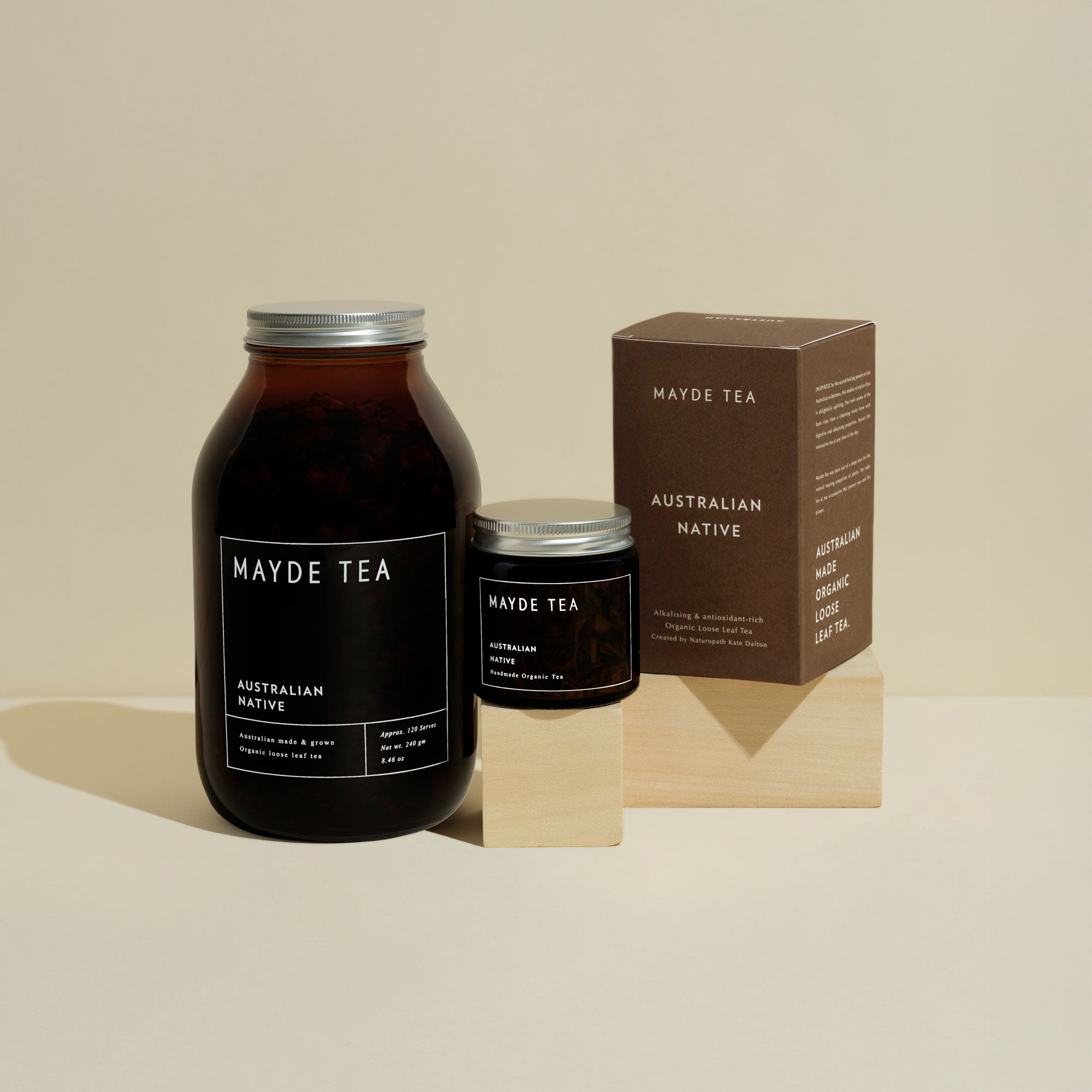
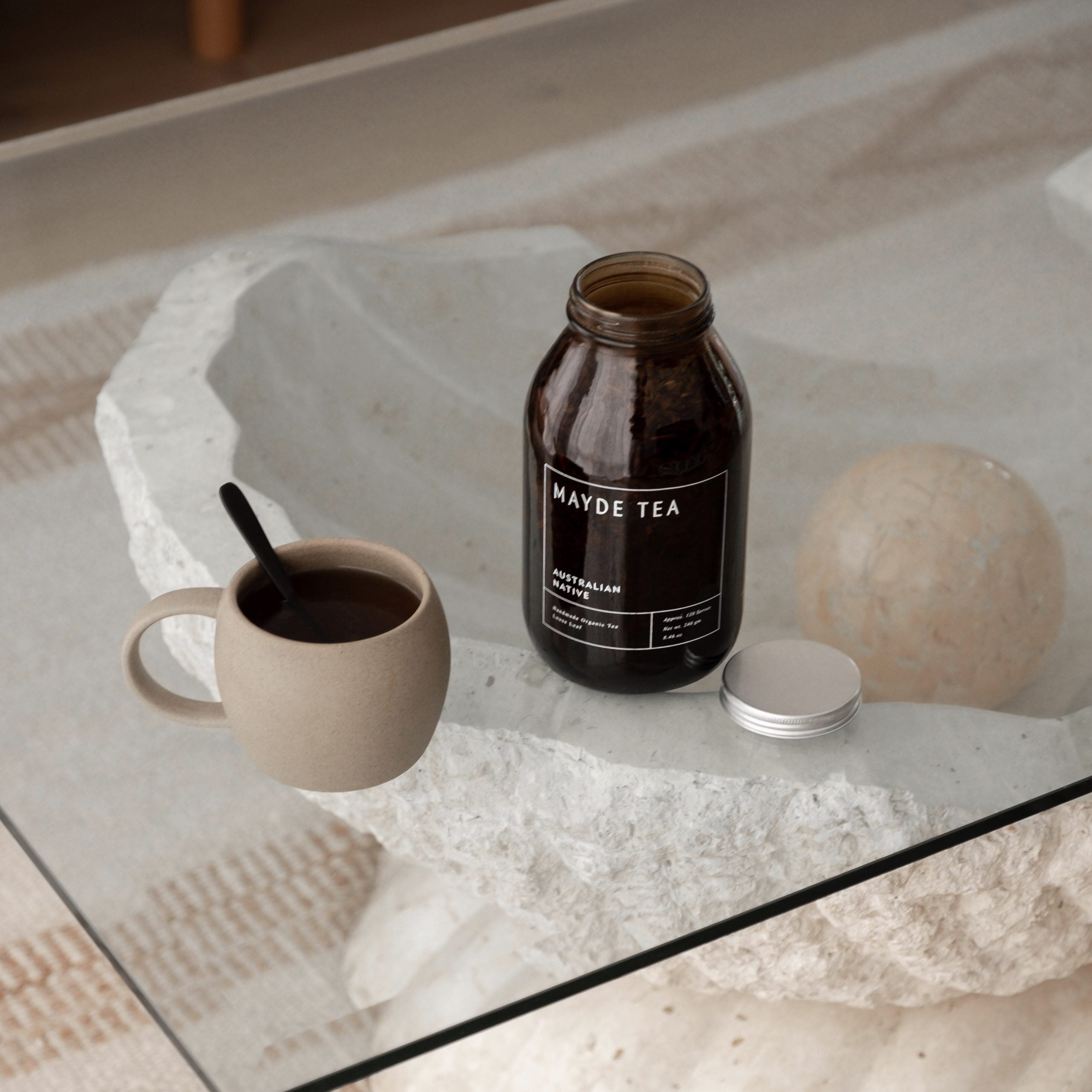
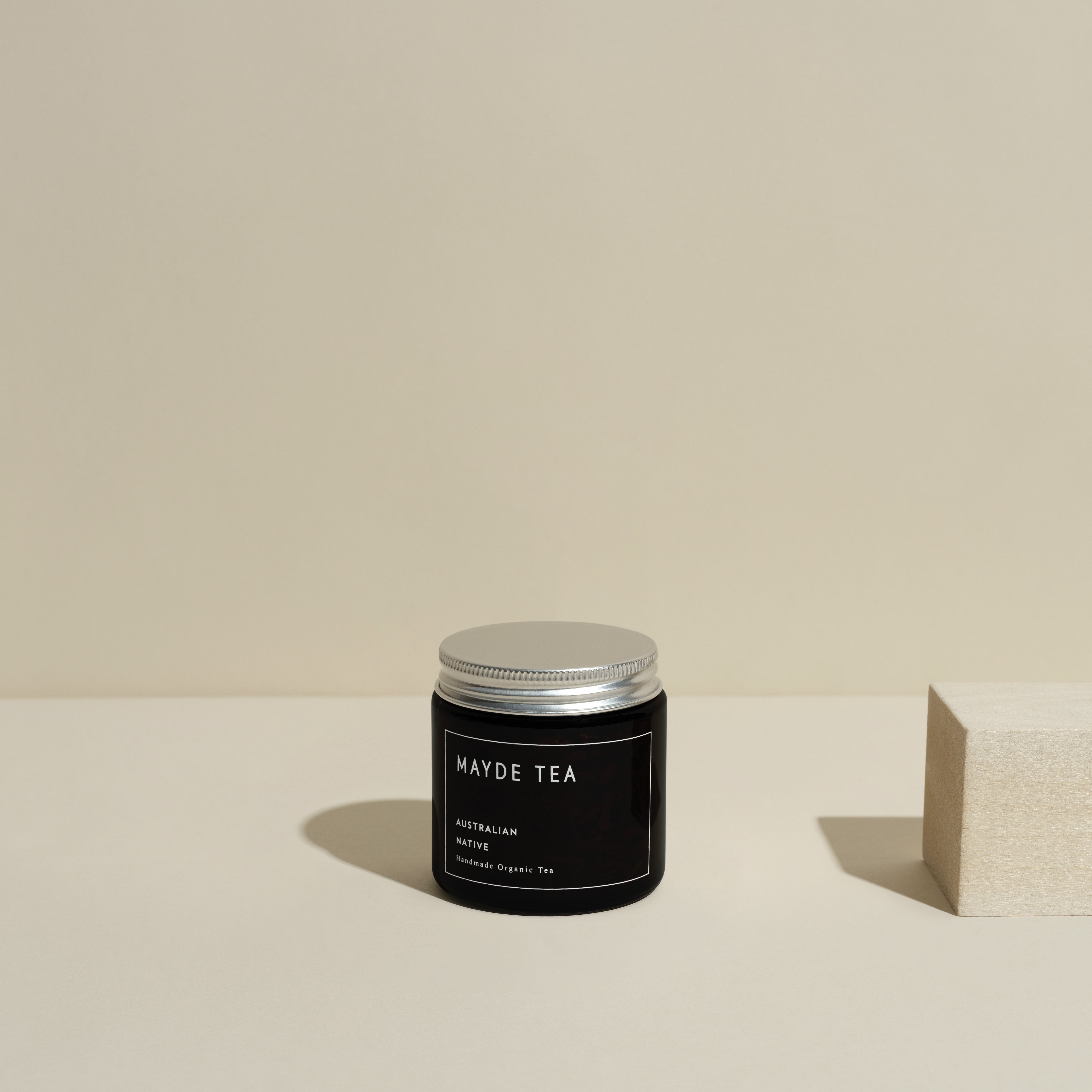
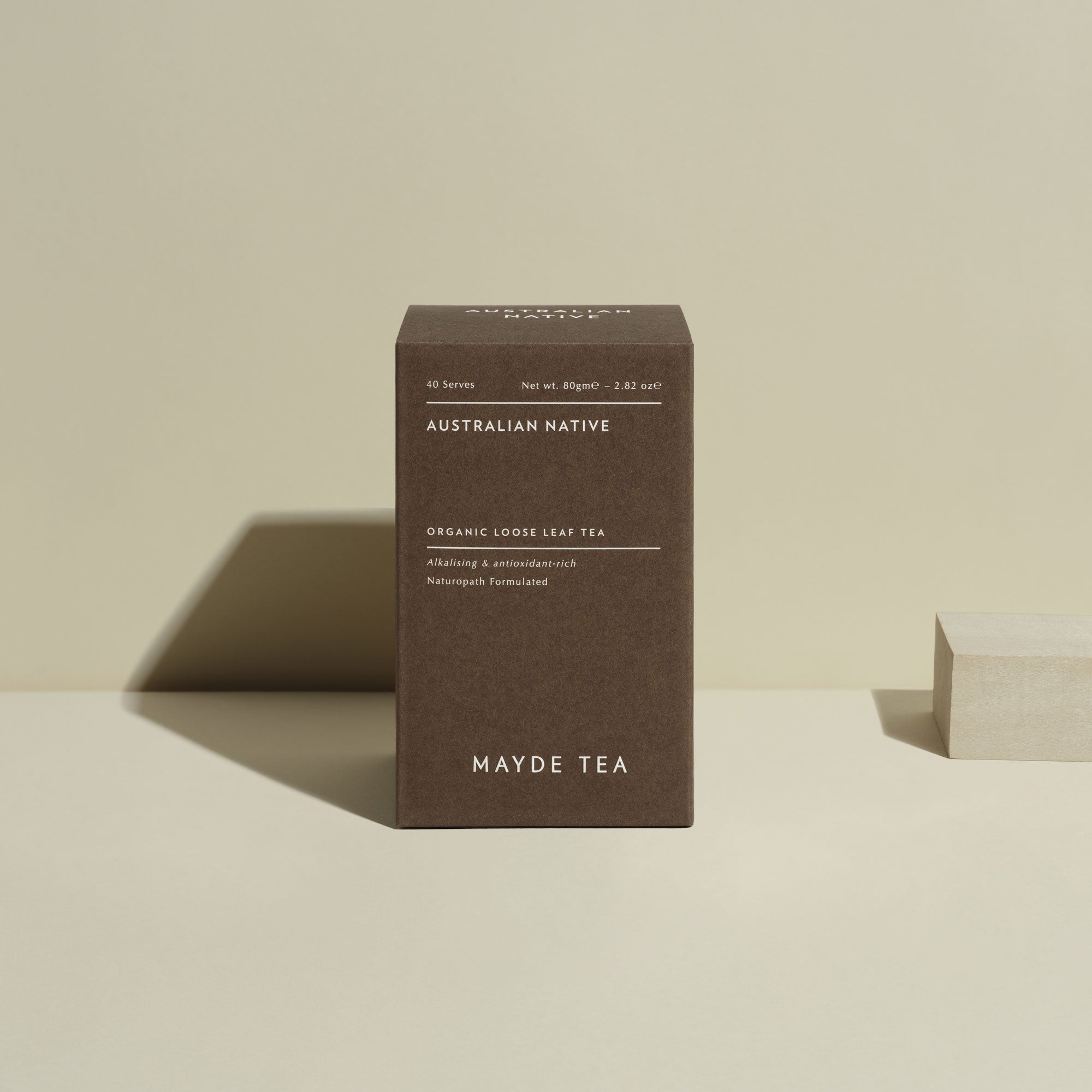
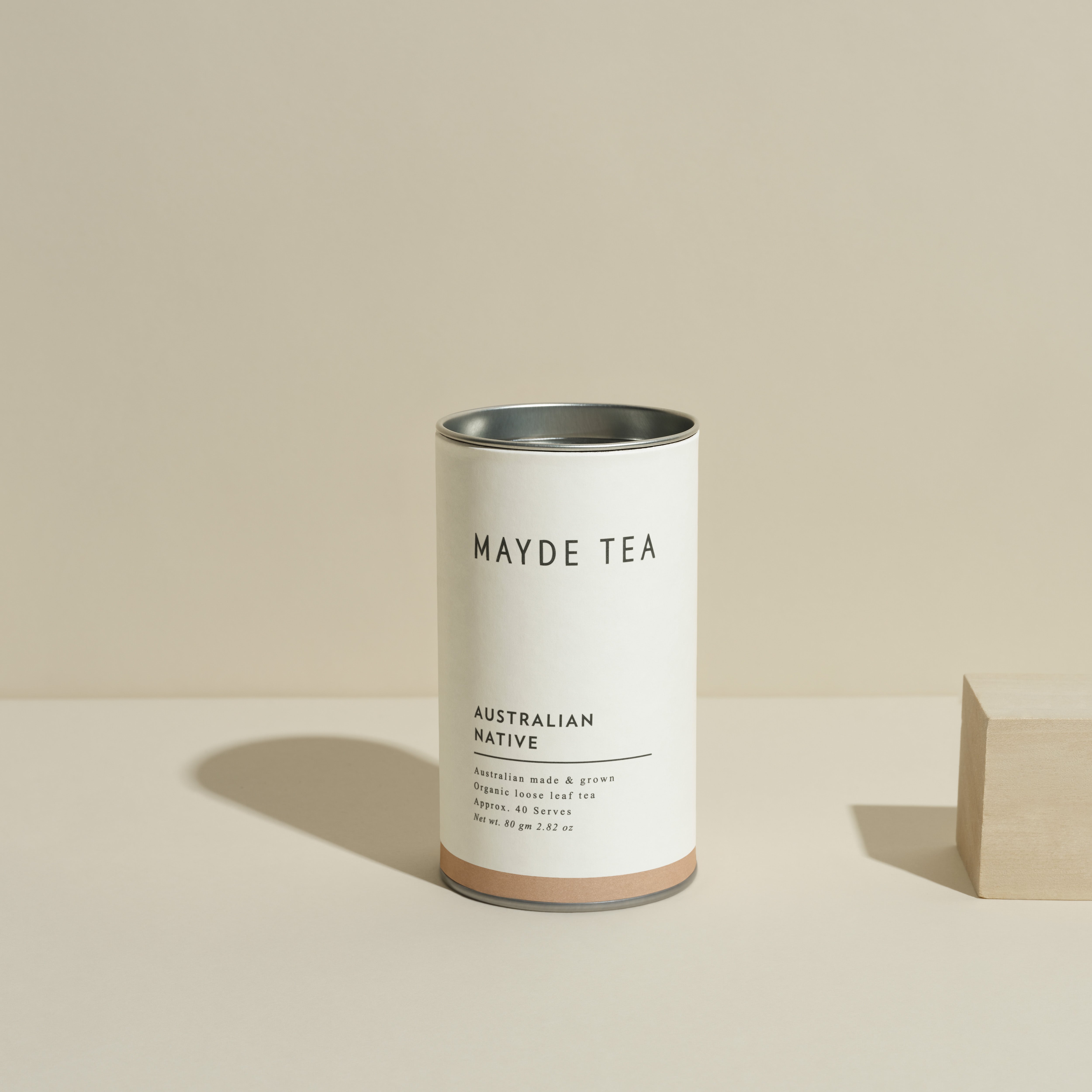
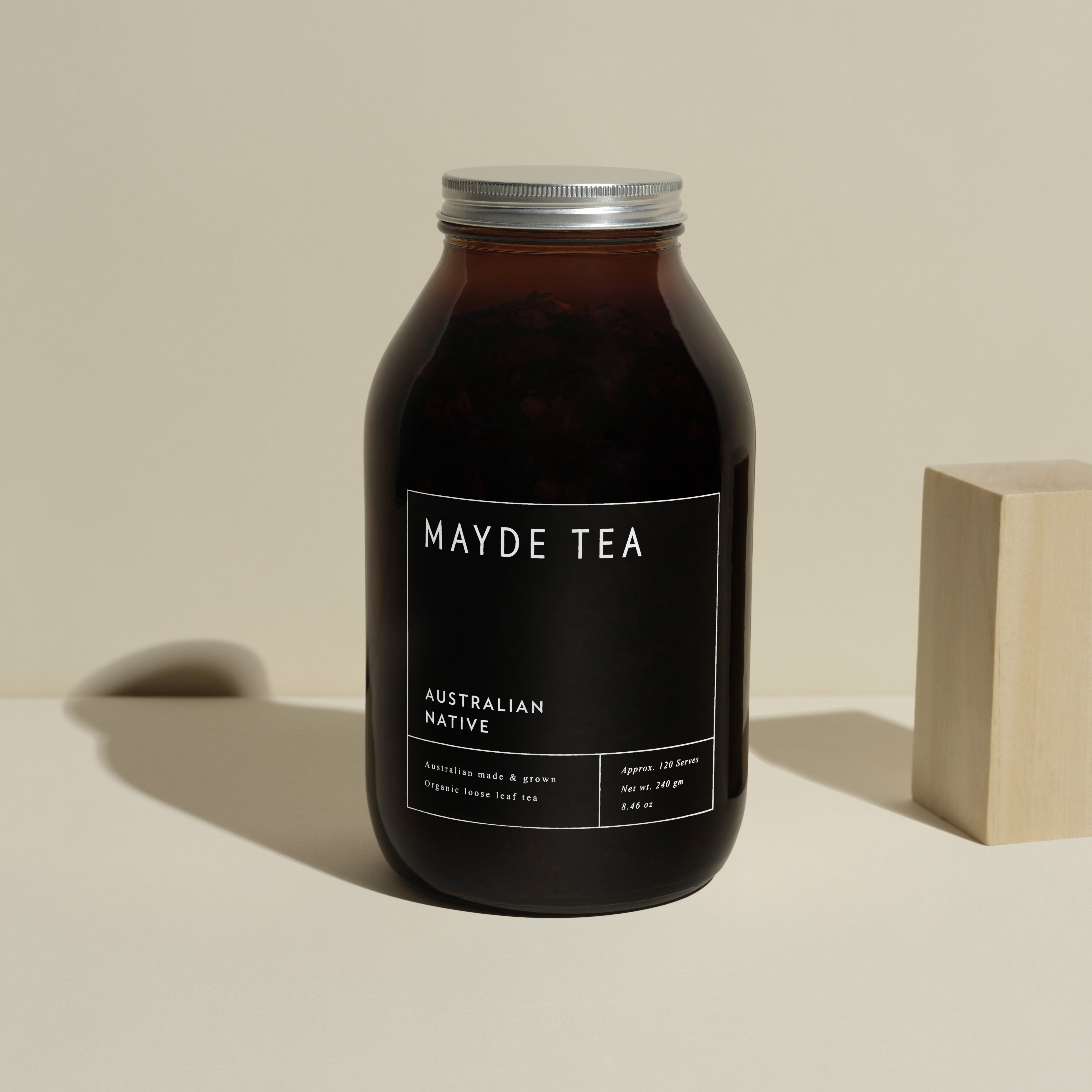
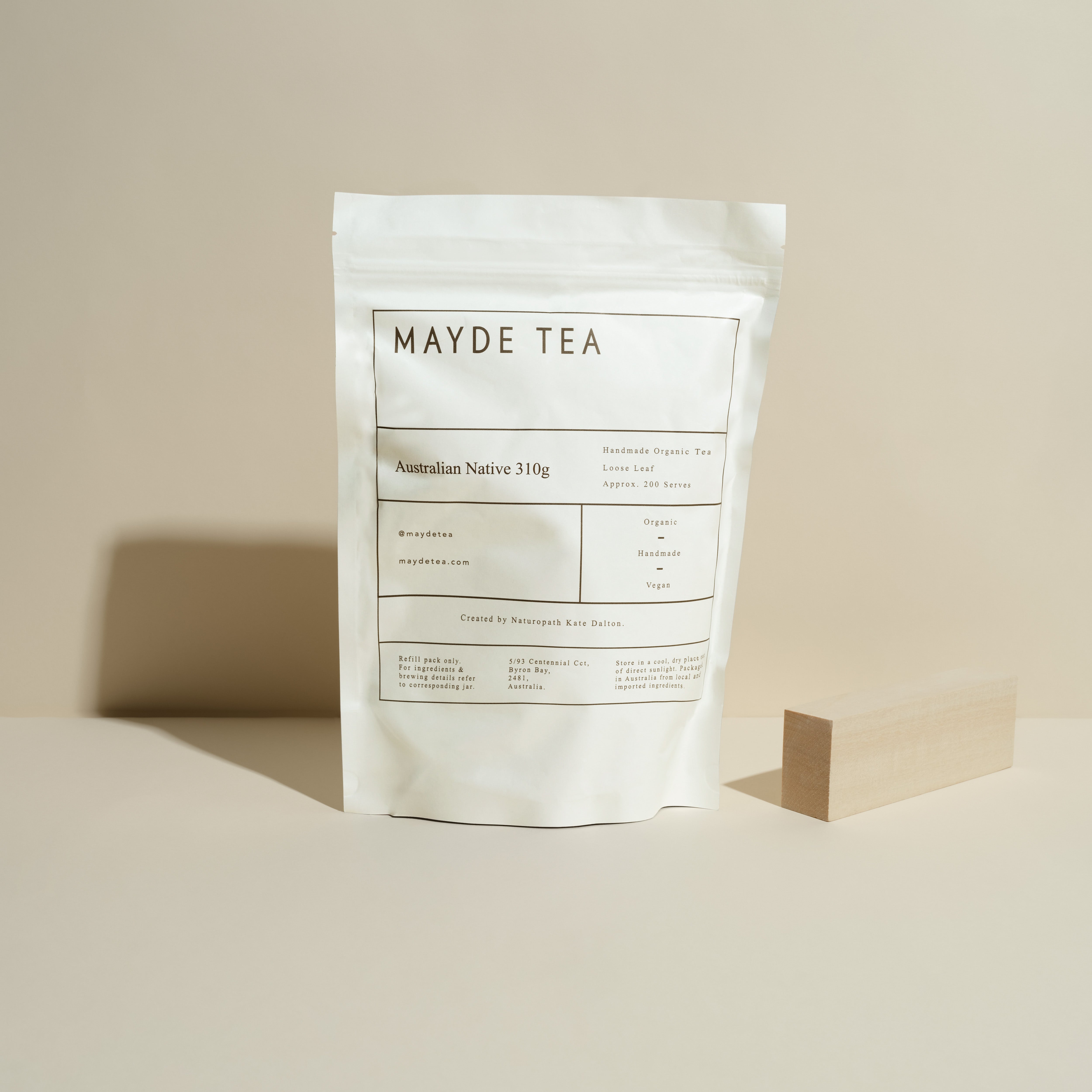

Leave a comment
This site is protected by hCaptcha and the hCaptcha Privacy Policy and Terms of Service apply.